Paul Finch - Stronghold
Здесь есть возможность читать онлайн «Paul Finch - Stronghold» весь текст электронной книги совершенно бесплатно (целиком полную версию без сокращений). В некоторых случаях можно слушать аудио, скачать через торрент в формате fb2 и присутствует краткое содержание. Жанр: Ужасы и Мистика, на английском языке. Описание произведения, (предисловие) а так же отзывы посетителей доступны на портале библиотеки ЛибКат.
- Название:Stronghold
- Автор:
- Жанр:
- Год:неизвестен
- ISBN:нет данных
- Рейтинг книги:3 / 5. Голосов: 1
-
Избранное:Добавить в избранное
- Отзывы:
-
Ваша оценка:
- 60
- 1
- 2
- 3
- 4
- 5
Stronghold: краткое содержание, описание и аннотация
Предлагаем к чтению аннотацию, описание, краткое содержание или предисловие (зависит от того, что написал сам автор книги «Stronghold»). Если вы не нашли необходимую информацию о книге — напишите в комментариях, мы постараемся отыскать её.
Stronghold — читать онлайн бесплатно полную книгу (весь текст) целиком
Ниже представлен текст книги, разбитый по страницам. Система сохранения места последней прочитанной страницы, позволяет с удобством читать онлайн бесплатно книгу «Stronghold», без необходимости каждый раз заново искать на чём Вы остановились. Поставьте закладку, и сможете в любой момент перейти на страницу, на которой закончили чтение.
Интервал:
Закладка:
Stronghold
Paul Finch
CHAPTER ONE
1295 AD
It was early March, but spring still hadn't arrived. The woods to either side of the River Ogryn were not yet in flower. They were black and tangled, laced with grey mist. Within a month the river would be foaming and thundering, swollen with melt-water from the heights of Plynlimon, but for now it was an icy trickle, meandering down the shallow valley, zigzagging between tumbled rocks and fallen branches covered with frost.
At the head of the valley lay a mound of weapons. For the most part they were swords, axes and spears, though there were also improvised farm tools — scythes, flails, reaping hooks. The majority were tarnished and chipped, their hafts or hilts bound with fleece and homespun linen. If they'd been honed to sharpness, it had been done inexpertly; many of the blades had a keen edge but had been thinned to the point where they were brittle. Others had already cracked and broken.
Even so, it was agonising for the Welshmen to surrender them. They passed the mound in their ones and twos, grudgingly discarding their implements, throwing surly glances at the group of mounted figures watching from close by. The foremost of these was a woman sitting on a roan mare. She was of early middle age and extraordinarily handsome, green eyed and feline in her beauty. A hooded coat of white fox fur shielded her from the chill winds, and her long red tresses were bound with a copper circlet. She was Countess Madalyn of Lyr, a noblewoman of high standing in this region. When Powys had been a kingdom in its own right, her family had held its eastern populace in thrall, but, with fair governance and courageous leadership, had stirred loyalty rather than resentment. Now that Powys was a dominion of the English Crown, she was viewed with less affection. Her passion for her people was not doubted, and some regarded her fondly as a living embodiment of happier days, but many either mistrusted her as a collaborator or saw her as a pawn in a greater political game over which she had no control.
Countess Madalyn's daughter, Gwendolyn, was mounted alongside her on a milk-white pony. She also was clad in luxurious furs, and though fairer even than her mother, more slender of build and with an elfin prettiness, in truth she was little more than hogannod; an inconsequential girl, who would some day inherit the countess's title and lands but probably none of her spirit. The passing Welshmen paid her no heed, though when it came to the third mounted figure they either glared at him with open hatred or spat at his horse's feet.
He was Corotocus la Hors, marcher baron of the English realm and Earl of Clun. He was a trim, broad-shouldered man in his late thirties, handsome with close-cropped brown hair, a trimmed beard and moustache, and piercing blue eyes. Fully girt for war, he wore a crimson tabard emblazoned with his heraldic black eagle belted over his suit of black mail, a cross-hilted longsword at his hip, and a thick bearskin cloak at his shoulders. His horse, Incitatus, was a black stallion, sleek and powerful, maybe sixteen hands to the withers. Like its master, it had been born and bred in a crucible of war. As the Welsh trudged past, it tossed its mane at them, snorting and pawing the rutted ground.
"These fellows of yours don't know when they're beaten," Earl Corotocus observed. "I'll give them credit for that."
"They weren't beaten, my lord," Countess Madalyn said. "They surrendered voluntarily."
Neither spoke English as their first language, but, despite their lilting accents, it was the easiest way for the Anglo-Norman lord and his Welsh counterpart to converse.
"Then they aren't stupid either," he replied. "Though they could mind their manners."
"You surely don't expect them to welcome English dominance in their land?"
"If I'm honest, my lady, I have no expectations. I'm here purely to exercise my duty. If I were to falter in that, King Edward's mighty hand would crush me as surely as it would crush you and all this peasant race you claim kinship with."
Countess Madalyn glanced round to where Kye, her personal bodyguard, stood watching her back. An immense, bear-like fellow with a dense black beard and brooding countenance, he had been instructed from the outset not to rise to English provocation. He nodded his understanding of this order.
"Feeling the way you do, my lord, I'm grateful, but surprised, that you accepted the truce," the countess said.
Corotocus shrugged. "Peace terms must always be taken seriously when the alternative is laying siege to a bastion like Grogen Castle. Something tells me these fellows would not have fled it as quickly as the Breton sot assigned to hold it against them."
Grogen Castle, only twenty miles from here, had been abandoned by its royal castellan without a blow struck in resistance to the Welsh army who'd encircled it. Its puny garrison of Breton mercenaries had spent more time drinking and whoring than preparing for war and, when the time had finally come, had discovered that they'd lost all appetite for the hardships of battle. This was in stark contrast to the Welshmen now trailing down the valley. Despite having some mail shirts between them, they were mainly clad as foresters — in hose, felt boots and hooded woollen jerkins. Yet they were a rough, hardy sort, dark eyed and sullen of brow. They were all shapes and sizes; some were young, some old, but they had a vigour and robustness that the average English peasant lacked. Corotocus knew why. The main industry in this part of the kingdom was sheep rearing rather than rood-work. This was physically demanding work carried out on a mountainous landscape of coarse pasture and tumbling, boulder-strewn valleys. The simple act of moving from place to place built up great reserves of strength and stamina in the natives. On top of that, their barbarous tribal customs had toughened them in other ways, and they'd had no option but to grow used to the cold, wet gales howling in from the Irish Sea.
"I'm glad you understand," Countess Madalyn said. "It's very important to these men that you realise they didn't give up the castle because they are frightened of a fight. After Prince Madog's defeat at Maes Moydog, I was able to persuade them that the cause is futile. That it would have meant another prolonged war of annihilation and that, even if they were victorious in the end, the result would be burnt homes, ravaged farmland, famine and pestilence."
Corotocus nodded. "You did right. You are a good mother to your people."
His household champion trotted up from behind, a swarthy Aquitainian knight, whose brutish face was bisected down the middle by an ugly cleft. The relic of a deep scimitar wound incurred many years earlier, this had now left him with features that were weirdly asymmetrical, one eye slightly higher than the other, his mouth slanted, his nose, what remained of it, horribly crooked.
"That's the last of them, my lord," he said.
"You're certain, Navarre?"
"Four hundred men in total have surrendered their arms and are returning to their homes."
This appeared to be true. No more Welshmen now appeared. The last handful was already fifty yards down the valley.
"Good," Corotocus said. "Du Guesculin!"
Hugh du Guesculin, his chief herald and banneret, rode forward. Like Navarre, he wore mail and the earl's household livery. He also carried the earl's gonfalon — a long pole from the top of which the black eagle billowed on a crimson weave. But he seemed less of a warrior. He was portly, with a clipped moustache and dainty manner.
"My lord?" he enquired.
"Begin the punishment."
Countess Madalyn glanced at the earl, puzzled. He smiled coldly. Du Guesculin summoned a page, who put a hunting horn to his lips and blew a single, clear blast.
Читать дальшеИнтервал:
Закладка:
Похожие книги на «Stronghold»
Представляем Вашему вниманию похожие книги на «Stronghold» списком для выбора. Мы отобрали схожую по названию и смыслу литературу в надежде предоставить читателям больше вариантов отыскать новые, интересные, ещё непрочитанные произведения.
Обсуждение, отзывы о книге «Stronghold» и просто собственные мнения читателей. Оставьте ваши комментарии, напишите, что Вы думаете о произведении, его смысле или главных героях. Укажите что конкретно понравилось, а что нет, и почему Вы так считаете.
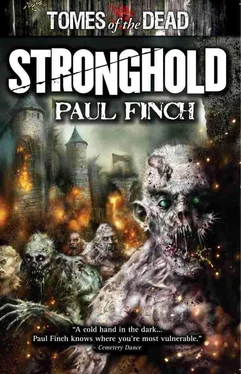
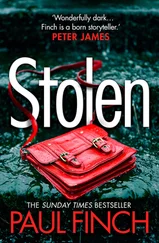
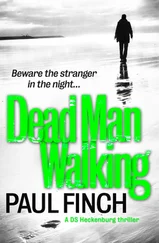
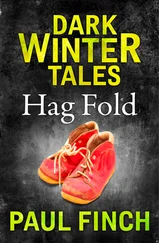
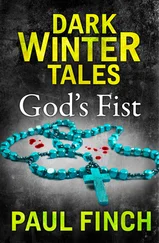
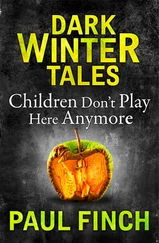
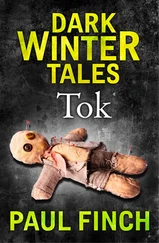
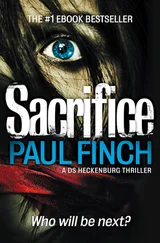
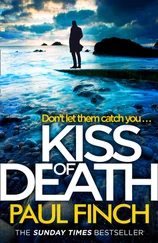
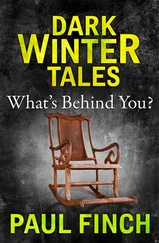

![Paul Finch - A Wanted Man [A PC Heckenburg Short Story]](/books/702381/paul-finch-a-wanted-man-a-pc-heckenburg-short-sto-thumb.webp)
